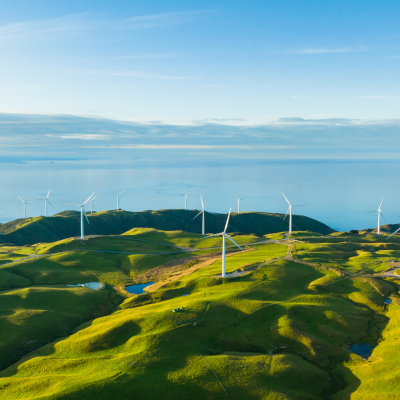The majority of the funding required for a smooth transition to green energy can be met by independent financial organizations if economic guidelines are prudent. Private institutions can invest the funds received to develop clean energy sources, as well as power propagation and dissemination systems, if they believe the energy industry’s strategies are transparent and energy trading practices are adequate. Moreover, private financial players can offer affordable automobile financing options if governmental policies encourage consumers to invest in electric vehicles. If policies, such as emissions tax or renewable fuel directives, force businesses (including steel, shipping and other hard-to-abate industries) to decarbonise, significant funds can be obtained from the accumulated profit of such organisations or from outside investments.
In the absence of the aforementioned policies, investments are highly unlikely to be circulated timely or effectively. Therefore, it is imperative that effective policies are developed and implemented so that countries with all income levels achieve carbon neutrality. Moreover, investments in certain industries may be constrained by physical hurdles to funding regardless of the income levels of a nation and its well-structured economic regulations. Therefore, balanced policies should include functions of public finance either through fiscal spending/loans or through public infrastructure/development financial institutions.
Such policies include finances from government-owned infrastructure development banks, direct financial investments and loans. The objectives of these policies may differ depending on a nation’s circumstances. However, for the most part, they should focus on:
- Distinctive technological advancements: Most distinctive technology investments are at a nascent stage and require significant capital. Thus, organizations seeking to invest in technologies may find it difficult to raise capital, as lenders may be wary given the risks tied to these investments whose evaluation needs considerable effort and time. Infrastructure development banks can assist such organizations in making investments in unique technologies.
- Growing critical infrastructure: Critical infrastructure growth is possible by addressing investment patterns and demand. Initiatives, including hydrogen shipping and delivery systems and electric vehicle charging stations, are likely to attract private financing.
- Upgrade of residential properties: Owners of properties in nations where decarbonizing household heating is a significant problem can benefit from laws and regulations that support them financially through incentives and/or subsidized loans.
Procedural changes in carbon neutrality and other such independent obligations made by private banking organizations
A number of commercial financial organizations have pledged to adjust their operations to achieve carbon neutrality by mid-century or meet the Paris Agreement target. These pledges may lead to different borrowing or asset distribution patterns, as well as encourage lower investments in high-emission industries and innovative finance in emission-reduction initiatives. To make these pledges effective, financial institutions must convert these pledges into zero-emission strategies with specific objectives, action plans, key performance indicators and suitable metric identification and monitoring systems.
Introduction of financial laws to promote and reward private financial institutions investing in a carbon-free world
The governing bodies are expected to develop and implement laws and regulations that promote effective communication, prevent environmental threats and support mitigation measures through reporting on financial metrics. The laws should ensure that:
- Finance providers use scenario modelling and stress assessments to evaluate and mitigate hazards linked to climate change.
- Defined methods are implemented to evaluate important metrics, such as the proportion of low-high carbon investments and funded pollutants, in order to establish potential obligations and verifiable disclosure requirements.
Concerns surrounding capital investments in China
The unusual financial and political environment in China has put lawmakers in a difficult position, despite bringing growth opportunities. Real estate and related projects account for approximately one-fourth of China’s total GDP, with the construction industry making up around 35% of total carbon emissions and per-person emissions, materially greater than any other nation. Thus, the complex composition of the Chinese economy has a large negative impact on the environment. Concerns related to the redeployment of capital to develop real estate and associated properties are being addressed by the country’s lawmakers. They have introduced legislative controls to discourage real estate speculations.
The role of financial institutions is critical in achieving energy transition goals, such as net-zero emissions. Policies, guidelines, regulations and other initiatives encouraging private financial institutions to consider environmental issues would help achieve global climate-related targets. However, the decision of regulators and the condition of a country’s economy are critical aspects the financial industry should consider while developing and implementing climate-focused plans.














